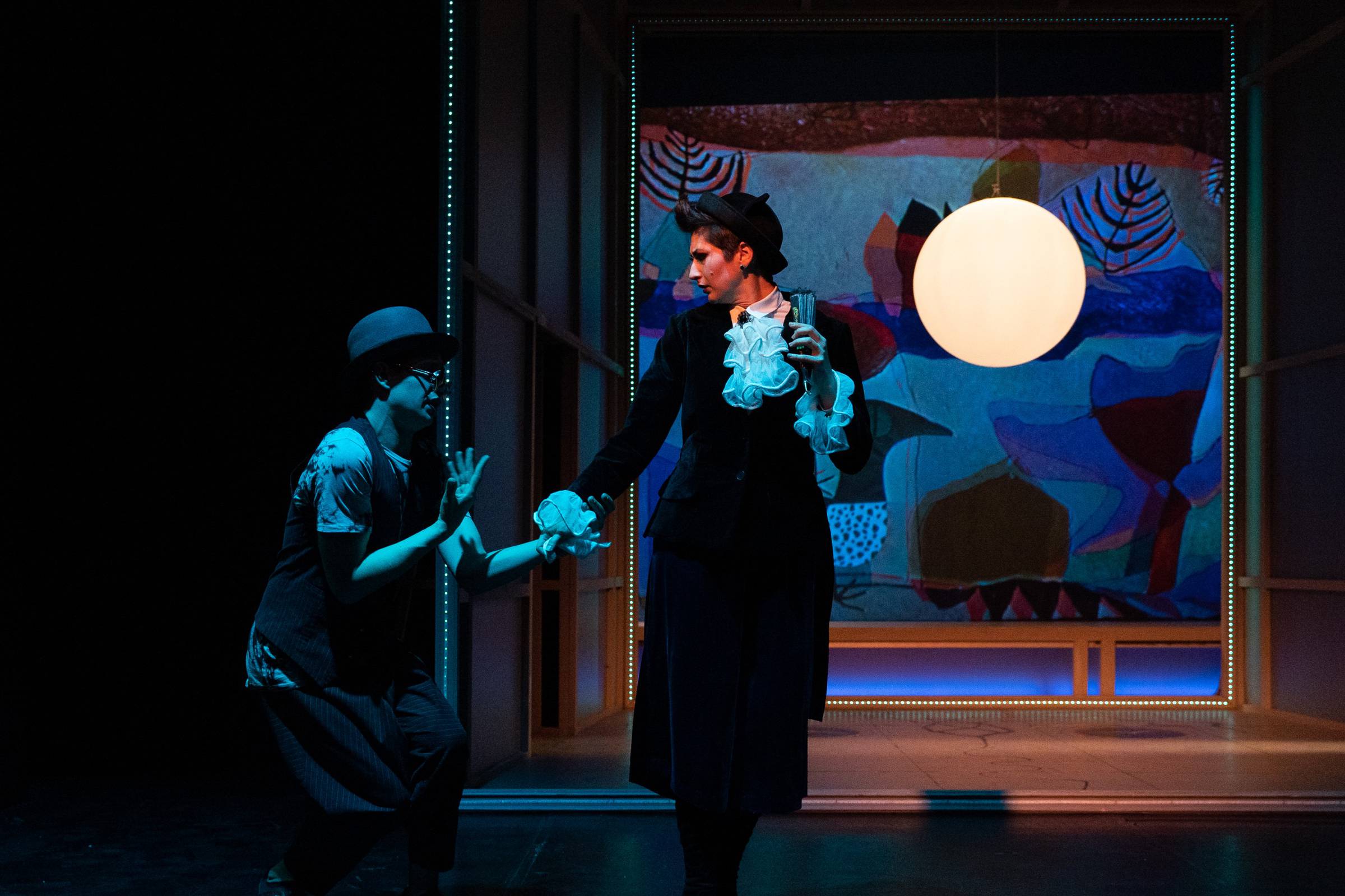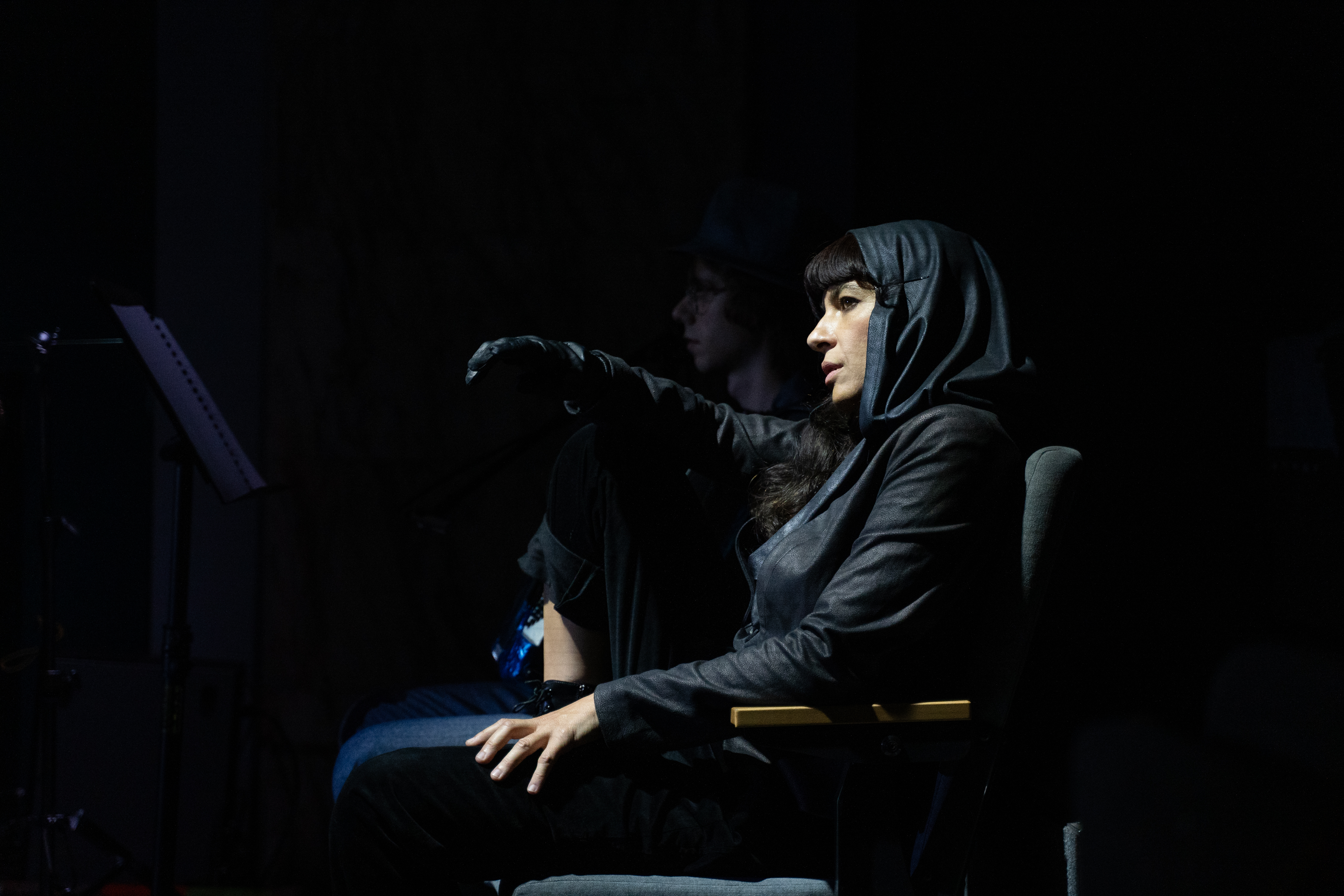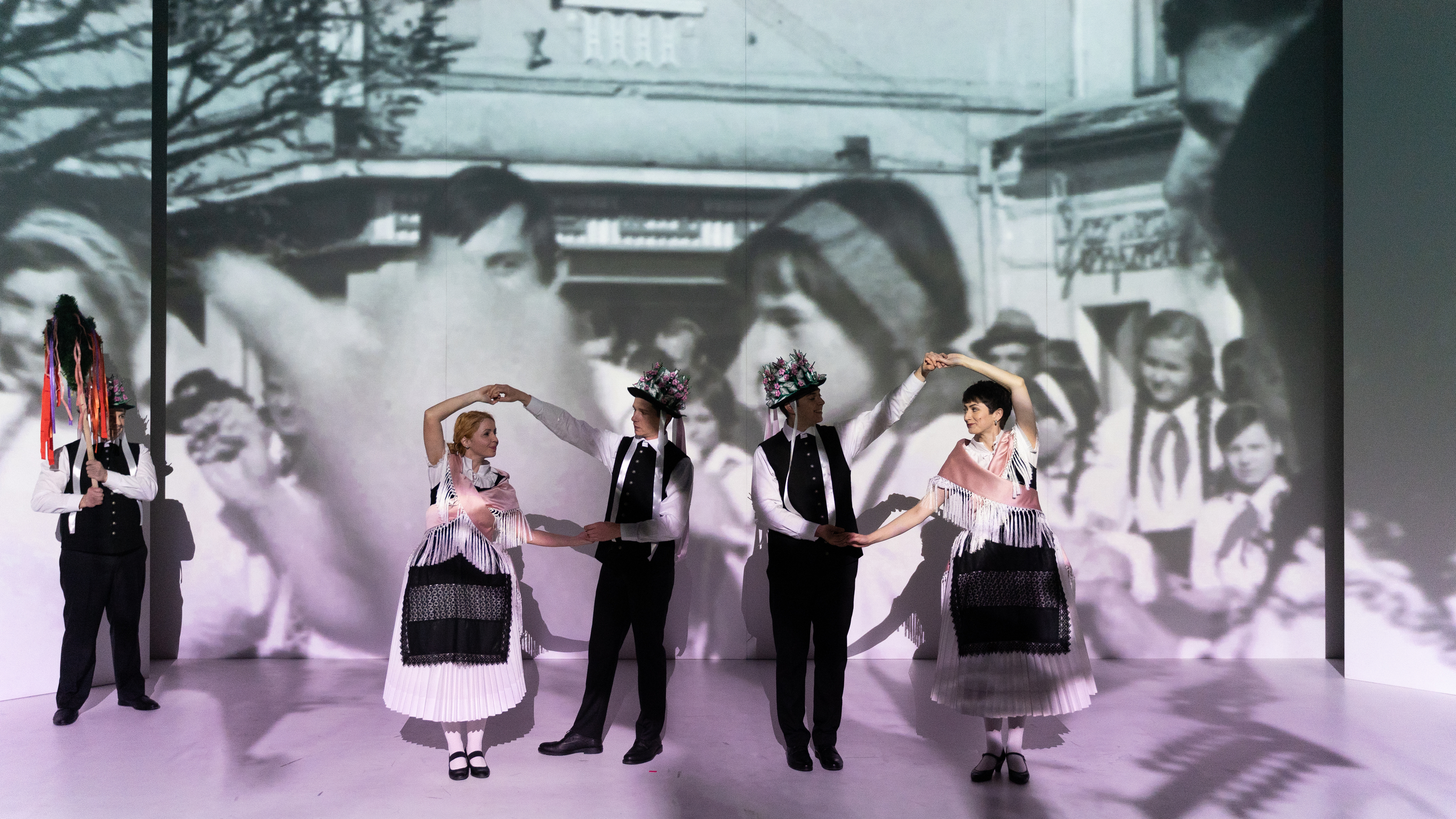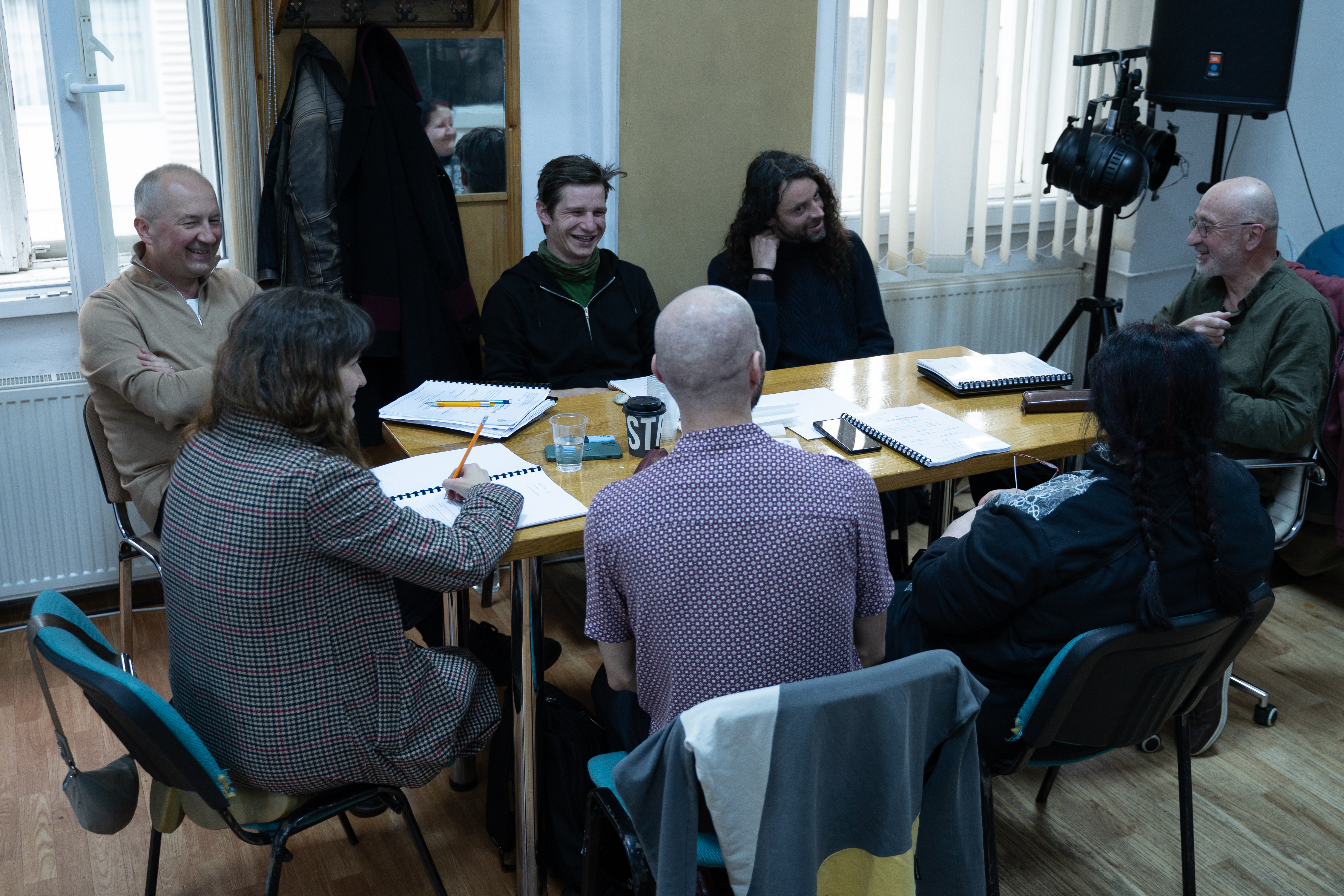
Leonce and Lena, the political satire written by Georg Büchner and directed by Niky Wolcz, will play twice in October
13 October 2023The German Theatre invites you this month to two performances of Leonce and Lena, the first on our stage on Wednesday, 18 October 2023, starting at 7.30 pm, and the second in Odorheiu Secuiesc as part of the 14th edition of the Colloquium of National Minority Theatres. The event will take place on Saturday, 21 October 2023, from 19:00 in the hall of the "Tomcsa Sándor" Theatre.
3 cities, 5 locations, 14 days, 20 theatre performances, over 30 related programmes, 600 participants. These are the figures of this year's edition of the Colloquium of National Minority Theatres, organised from 18-31 October by the Figura Studio Theatre and the Figura Society, in partnership with the Csíki Játékszín Theatre and the Tomcsa Sándor Theatre. The longest-running, two-week festival will host performances, exhibitions, book launches, a book fair and children's activities.
Tickets for 18 October can be found here: https://www.entertix.ro/bilete/18700/leonce-und-lena-leonce-si-lena-18-octombrie-2023-teatrul-german-de-stat-timisoara.html
“Leonce and Lena”, a comedy, was written in 1836, and was published for the first time two years later, in a magazine, following the premature death of its author – Georg Büchner. After another 12 years, in 1850, it was printed in book format. Nevertheless, its first theater staging was to happen almost half a century later, in 1895. But why was this play almost forgotten during the 19th century even though today it’s considered by critics one of the greatest classic comedies pertaining to the German cultural area, gaining prominence in the 20th century, and beloved by many for its ingenious atmosphere and clever word play?
One of the reasons is that “Leonce and Lena” is the first political satire of its magnitude ever to be published in German literature. Back then, Germany was a conglomerate of small kingdoms and duchies, and to deride them was unacceptable. Leonce is a prince in the Kingdom of Popo, and Lena is a princess from the Kingdom of Pipi! It seems like a childish antic, but the penman of these characters is one of the founders of the Society of Human Rights, the author of a pamphlet which one could receive only by knowing the secret password: “Peace to the huts! War on the palaces!”. Following this publication, Büchner became a wanted man and had to flee abroad. Johan Wolfgang von Goethe, for instance, a minister of Weimar at the time, would have never thought of rebuking the ruling political class.
See you in October at Leonce and Lena!


